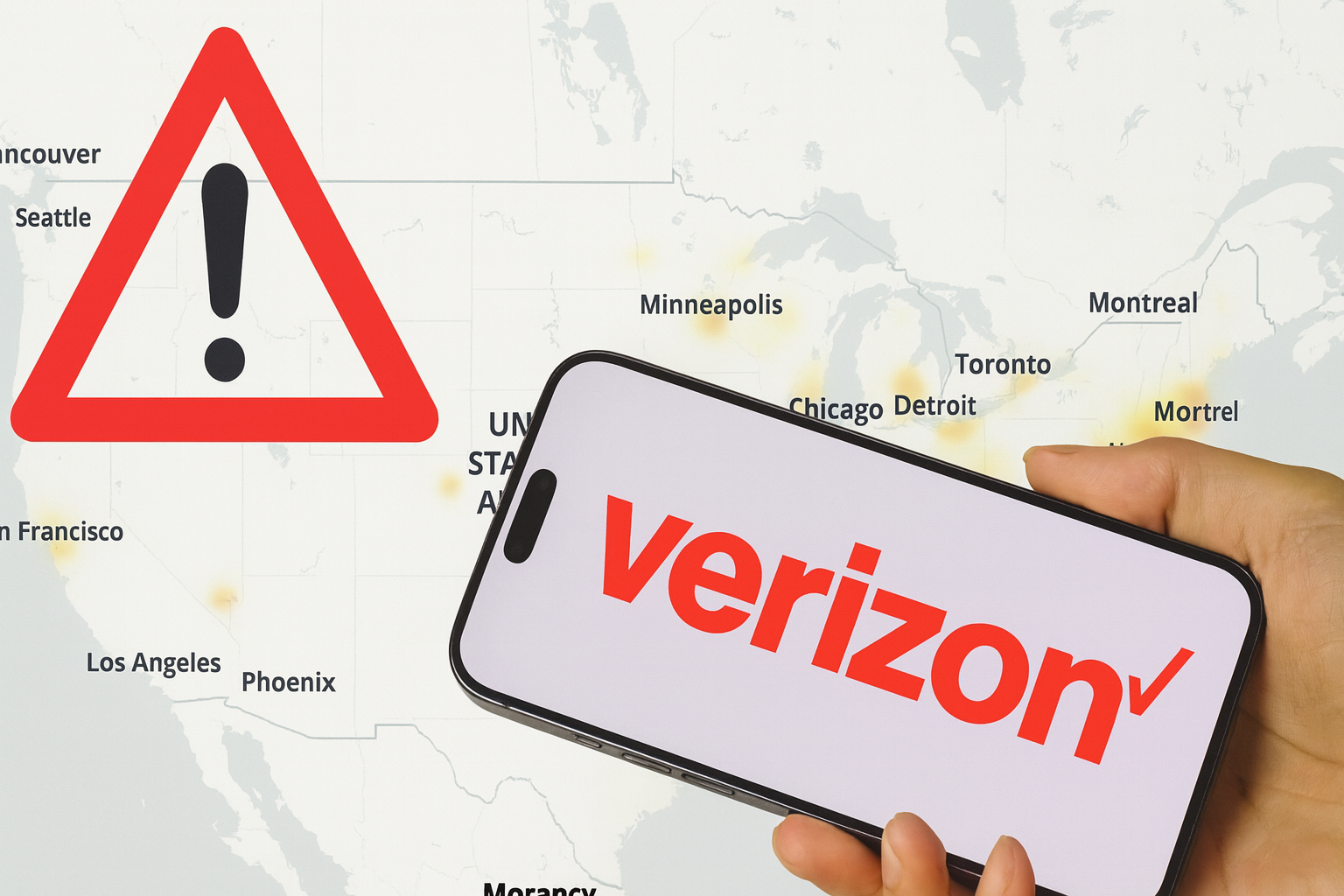Thousands of Verizon customers were suddenly cut off from mobile and internet service early Friday morning in a widespread outage that spanned multiple U.S. states.
According to Downdetector, a site that monitors service disruptions, the number of outage reports ballooned from just 83 at 11:50 p.m. ET Thursday to more than 7,500 by 12:20 a.m. Friday. Activity began to slowly taper off over the next few hours. By 3:30 a.m., the figure had dropped to roughly 314, still far higher than the typical baseline of 29 reports at that time of night.
Major Cities Affected
Reports of service failures came in from across the country, with New York City, Boston, Washington D.C., Detroit, and Minneapolis showing the heaviest concentrations, according to Downdetector’s outage map. Customers in Atlanta, Houston, Phoenix, Seattle, and San Francisco also experienced widespread disruptions.
Data indicated the outage was nationwide, impacting both mobile and home internet. Most reports involved mobile outages, with fewer reporting signal loss or home internet issues, suggesting wireless infrastructure bore the brunt of the failure.
“Like Two Tin Cans and a String”
On Downdetector’s forum, frustrated customers described their struggles to reconnect. One user in Jackson, MI wrote, “Tried to contact support, but can’t verify by text because they’re down.” They noted switching to a car’s AT&T signal instead.
Another customer from Novi, Michigan, said, “Home internet went down. Power cycling the router doesn’t resolve.” A third joked, “Should have stuck with two tin cans.”
By around 4 a.m., several users began reporting that service had returned. However, even as morning approached, some continued to voice concerns about the fragility of modern communication systems. “Never had both my phone and internet just flatline like that,” one commenter posted. “Makes me concerned how easily communications overall can be cut off.”
A Growing Pattern of Disruptions
The outage comes on the heels of smaller interruptions earlier this month. On October 9, Verizon customers in North Carolina experienced a brief service outage, which the company later attributed to a localized issue. “Some Verizon customers in the Charlotte, North Carolina, area may have experienced a brief service interruption in the early morning hours Thursday,” a company spokesperson told Newsweek after that incident. “Engineers were able to identify and quickly resolve the issue.”
Verizon, which has millions of wireless and broadband customers, has not released a statement on the cause of Friday’s outage. Newsweek said the company was contacted for comment outside regular hours.
Broader Concerns Over Network Reliability
The incident highlights growing public unease about the resilience of telecommunications infrastructure, particularly as daily life becomes increasingly dependent on uninterrupted connectivity. For hospitals, logistics firms, emergency responders, and small businesses operating overnight, even brief service interruptions can have cascading effects.
Verizon’s network stability has come under scrutiny in recent years following a series of brief but high-impact outages. Earlier this summer, the company announced an internal AI-driven customer support upgrade designed to provide faster status updates through app, text, or call notifications.
The telecom giant also began issuing settlement payments in January 2025 related to a $100 million class-action lawsuit accusing Verizon of adding undisclosed administrative charges in 2023. The company denied wrongdoing but agreed to the payout.
Service Restored, Questions Remain
By dawn on Friday, Downdetector’s data showed a steep decline in outage reports, suggesting engineers had stabilized the network overnight. Still, customers across social media urged Verizon to provide transparency about what caused the failure — and whether it could happen again.
For a company serving nearly 150 million wireless customers, even a short-lived outage can expose vulnerabilities that undermine public trust. As one commenter summed up: “It’s not just losing service — it’s realizing how quickly everything can stop when the system fails.”


